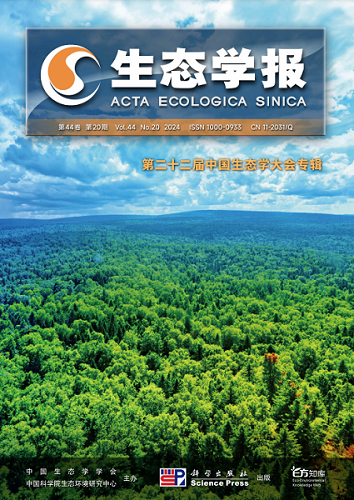In vitro culture introduction and microclonal reproduction of triploid Aspen (Populus Tremula L.)
IF 7.1
Q1 ECOLOGY
引用次数: 0
Abstract
In response to global warming issues, the entire world community seeks to decarbonize its energy and economy. One of the ways to reduce concentrated greenhouse gases in the atmosphere is to enlarge forest areas and encourage forest regeneration after fires. The given paper describes sterilization methods of primary explants. Studies have shown that 0.1% diacid solution supplemented with Tween 20 is the most effective at producing aseptic viable cultures of triploid aspen (Populus tremula L.) in vitro. This method provides the necessary amount of viable sterile cultures for their subsequent micro-multiplication (clonal), sufficient for the further mass production of planting material. Murashige & Skoog (MS) medium supplemented with 6-benzylaminopurine (BAP) had a more intensive formation of adventive buds compared to the medium with kinetin. Higher BAP concentration resulted in more regenerants from one explant with their height shortened. Woody Plant Medium (WPM) with different concentrations of 6-benzylaminopurine and indolyl-acetic acid (IAA) is more effective for working with triploid aspen. Effective reproduction at triploid aspen cultivation was shown at 0.5 mg/l concentration of BAP. The research results can be successfully used in vitro culture introducing of triploid aspen, experiments on micro-reproduction of other tree crops to get high-quality planting material.三倍体杨杨(Populus Tremula L.)离体培养、引种及微克隆繁殖
为了应对全球变暖问题,整个国际社会都在寻求使其能源和经济脱碳。减少大气中集中的温室气体的方法之一是扩大森林面积,鼓励森林在火灾后再生。本文介绍了初生外植体的灭菌方法。研究表明,0.1%的二酸溶液中添加Tween 20对三倍体白杨(Populus tremula L.)无菌活菌的体外培养效果最好。该方法为其后续的微增殖(克隆)提供了必要数量的有活力的无菌培养物,足以进一步大量生产种植材料。Murashige & Skoog (MS)培养基中添加6-苄基氨基嘌呤(BAP)比添加动蛋白的培养基更能形成不定芽。BAP浓度越高,一个外植体再生体数量越多,再生体高度缩短。不同浓度6-苄基氨基嘌呤和吲哚乙酸(IAA)的木本植物培养基(WPM)对三倍体杨树的处理效果更好。BAP浓度为0.5 mg/l时,三倍体杨树繁殖效果良好。研究结果可成功应用于三倍体杨树离体培养引种、其他林木作物微繁殖试验,获得优质种植材料。
本文章由计算机程序翻译,如有差异,请以英文原文为准。
求助全文
约1分钟内获得全文
求助全文
来源期刊

生态学报
Environmental Science-Ecology
CiteScore
5.30
自引率
0.00%
发文量
17028
审稿时长
68 days
期刊介绍:
Our Journal publishes recent theories and novel experimental results in ecology, and facilitates academic exchange and discussions both domestically and abroad. It is expected that our journal will promote the development of and foster research talents for ecological studies in China.
 求助内容:
求助内容: 应助结果提醒方式:
应助结果提醒方式:


